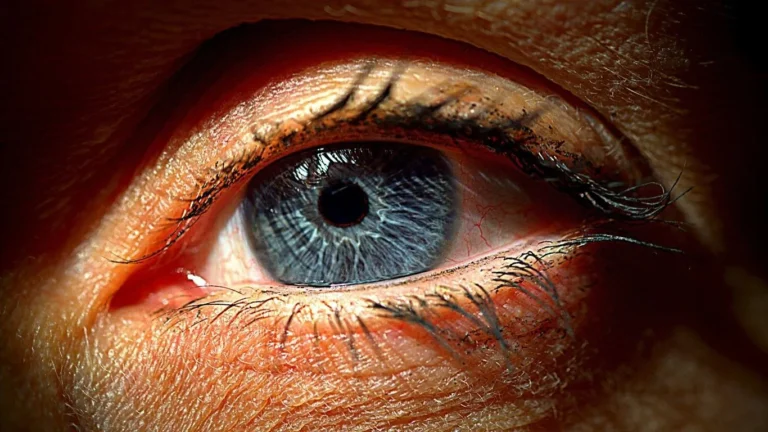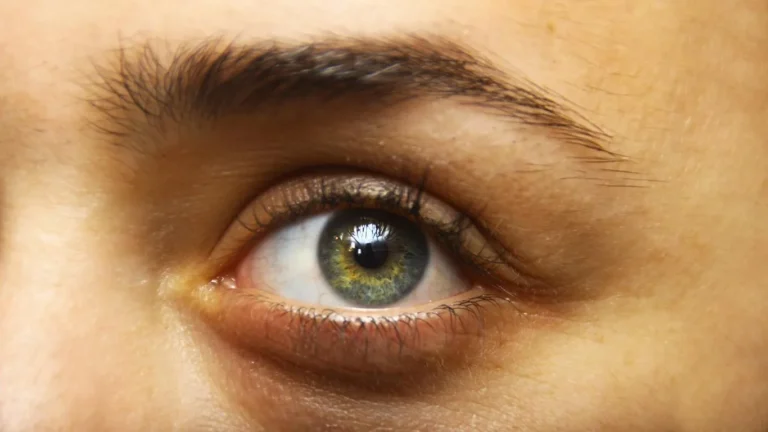Can Dehydration Cause Eye Floaters? – Unraveling the Connection
Explore the link between dehydration and eye floaters. Learn about their causes, symptoms, and preventive measures in our comprehensive guide.
Eye floaters are small, shadowy shapes that drift across your field of vision. They can be annoying and sometimes alarming, especially when they appear suddenly. While there are many causes of eye floaters, one question often arises: can dehydration cause eye floaters? In this detailed guide, we’ll explore the relationship between dehydration and eye floaters, providing insights into their causes, symptoms, and preventive measures.
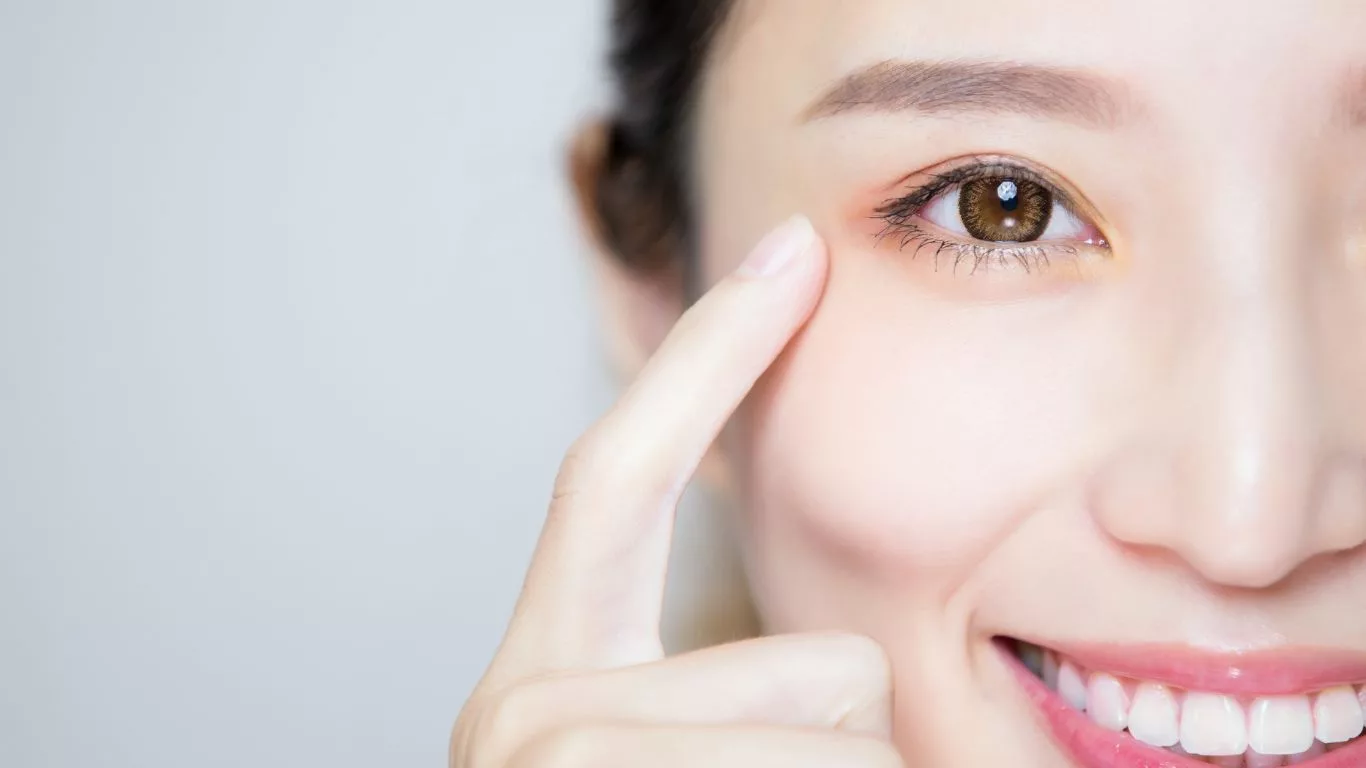
Understanding Eye Floaters
Eye floaters are small, shadowy shapes that drift across your field of vision. These floaters can appear as spots, threads, squiggly lines, or cobweb-like shapes and tend to move as your eyes move, seeming to dart away when you try to look directly at them. They are caused by tiny clumps of gel or cells inside the vitreous, which is the clear, gel-like substance that fills the inside of your eye. The vitreous makes up about 80% of the eye’s volume and helps maintain its round shape.
Most eye floaters are benign and result from age-related changes in the vitreous. As we age, the vitreous slowly shrinks and becomes more liquid-like, a process known as vitreous syneresis. This causes the vitreous to pull away from the retina, leading to clumping of the collagen fibers within the vitreous. These clumps cast shadows on the retina, which we perceive as floaters. Although floaters are usually harmless, they can sometimes be indicative of more serious underlying conditions that require medical attention.
Common Causes of Eye Floaters
While aging is the most common cause of eye floaters, several other factors can contribute to their development:
- Vitreous Detachment: As we age, the vitreous can shrink and pull away from the retina, leading to a condition known as posterior vitreous detachment (PVD). This is the most common cause of eye floaters. PVD can lead to the formation of floaters as the vitreous gel separates from the retina, creating shadows on the retina from the collagen clumps.
- Eye Infections and Inflammation: Conditions such as uveitis, which is inflammation of the uvea (the middle layer of the eye), can cause floaters. Uveitis can lead to the release of inflammatory debris into the vitreous, resulting in the appearance of floaters. Infections inside the eye, such as endophthalmitis, can also lead to floaters due to inflammatory cells and other debris.
- Eye Injuries: Trauma to the eye can disturb the vitreous gel, leading to the formation of floaters. Such injuries can cause bleeding inside the eye (vitreous hemorrhage) or other disruptions that result in floaters.
- Diabetic Retinopathy: This is a complication of diabetes that affects the blood vessels of the retina. In diabetic retinopathy, the damaged blood vessels can leak fluid or blood into the vitreous, leading to floaters. Proliferative diabetic retinopathy, where abnormal new blood vessels grow on the retina and into the vitreous, can also result in floaters when these vessels bleed.
- Retinal Tears and Detachment: A tear in the retina can cause floaters and requires immediate medical attention. When the vitreous pulls away from the retina too forcefully, it can cause a tear. If the retina tears, it can lead to a retinal detachment, a serious condition where the retina separates from the back of the eye. This can cause a sudden increase in floaters, flashes of light, and vision loss. Prompt treatment is essential to prevent permanent vision loss.
- Other Eye Conditions: Less commonly, other eye conditions such as macular degeneration, retinal vein occlusions, or tumors in the eye can lead to the appearance of floaters. These conditions can cause changes in the vitreous or retina, resulting in the formation of floaters.

The Role of Dehydration in Eye Health
Dehydration occurs when your body loses more fluids than it takes in, leading to an imbalance in electrolytes and essential body functions. Proper hydration is crucial for maintaining the health and function of all your organs, including your eyes. The eyes are particularly sensitive to changes in hydration levels because they rely on a delicate balance of fluids to function correctly. The vitreous humor, the gel-like substance inside the eye, and the tear film, which coats the surface of the eye, are both affected by hydration status.
Understanding the Impact of Dehydration on Eye Health
Dehydration affects the body in numerous ways, and its impact on eye health can be significant. Here are some of the ways dehydration can influence the eyes:
Vitreous Humor and Dehydration
The vitreous humor is a clear, gel-like substance that fills the space between the lens and the retina in the eye. It helps maintain the eye’s shape and allows light to pass through to the retina. When the body is dehydrated, the vitreous humor can lose water content, leading to a decrease in its volume and consistency. This can result in changes to the vitreous structure, making any existing floaters more noticeable. Floaters are tiny clumps of gel or cells that cast shadows on the retina, and changes in the vitreous can cause these shadows to become more apparent.
Tear Film and Dehydration
The tear film is a thin layer of fluid that covers the surface of the eye, providing essential moisture and nutrients. It plays a crucial role in maintaining clear vision and protecting the eye from irritants and infections. Dehydration can lead to a reduction in tear production, resulting in dry eye syndrome. Symptoms of dry eye syndrome include irritation, redness, blurred vision, and a gritty sensation in the eyes. When the eyes are dry, floaters can become more bothersome because the tear film’s reduced quality can make the floaters more noticeable against the background of the visual field.
Can Dehydration Cause Eye Floaters?
While dehydration is not a direct cause of eye floaters, it can contribute to conditions that make floaters more noticeable. Here’s how:
- Vitreous Shrinkage: As mentioned earlier, dehydration can lead to a decrease in the volume of the vitreous humor. This shrinkage can cause the vitreous to pull away from the retina, a process known as posterior vitreous detachment (PVD). While PVD is a common occurrence as people age, dehydration can accelerate this process or make it more pronounced, leading to an increase in the visibility of floaters.
- Dry Eye Syndrome: Dehydration can exacerbate dry eye symptoms, making the eyes feel irritated and uncomfortable. When the eyes are dry, the contrast between the floaters and the background of the visual field can become more pronounced, making floaters appear more bothersome. Additionally, the lack of adequate tear production can lead to less efficient removal of debris and cells from the surface of the eye, contributing to the perception of floaters.
Overall, staying hydrated supports overall eye health and can help reduce the severity of floaters caused by other underlying conditions. Proper hydration helps maintain the volume and consistency of the vitreous humor, ensuring that floaters are less likely to become more noticeable. Additionally, adequate hydration supports healthy tear production, reducing the symptoms of dry eye syndrome and helping to keep the eyes comfortable and clear. For these reasons, maintaining proper hydration is essential for promoting optimal eye health and minimizing the impact of floaters on your vision.
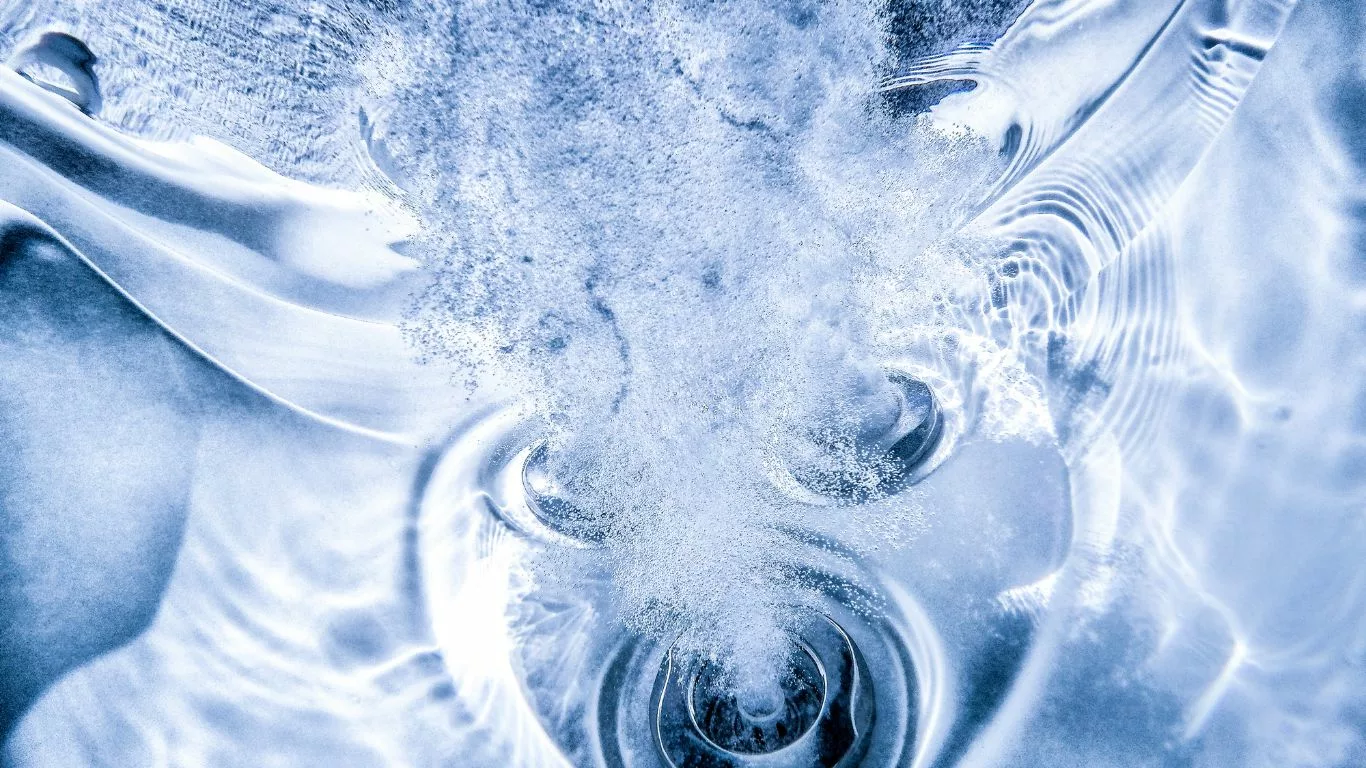
Preventive Measures and Hydration Tips
Maintaining good hydration and eye health can minimize the impact of floaters. Here are some detailed tips to keep your eyes healthy and your vision clear:
Stay Hydrated
Proper hydration is essential for overall health, including the health of your eyes. The body relies on adequate fluid intake to maintain the function of all its organs, including the eyes. Here are some tips to ensure you stay well-hydrated:
- Drink Water Regularly: Aim for at least 8 glasses (64 ounces) of water per day, but individual needs may vary depending on factors such as activity level, climate, and overall health. Carry a water bottle with you to encourage regular sips throughout the day.
- Monitor Your Urine: A simple way to check your hydration status is to observe the color of your urine. Pale yellow urine typically indicates adequate hydration, while darker urine may suggest you need to drink more fluids.
- Incorporate Hydrating Foods: Foods with high water content, such as cucumbers, watermelon, oranges, and strawberries, can contribute to your overall fluid intake. These can be refreshing snacks that also help keep you hydrated.
- Limit Dehydrating Beverages: Beverages like coffee, tea, and alcohol can have a diuretic effect, leading to increased fluid loss. While they can be enjoyed in moderation, balance their consumption with plenty of water.
Eat a Balanced Diet
A nutritious diet plays a vital role in maintaining eye health. Certain vitamins and minerals are particularly beneficial for your eyes. Consider incorporating the following into your diet:
- Leafy Greens: Spinach, kale, and collard greens are rich in lutein and zeaxanthin, antioxidants that protect the eyes from harmful light exposure.
- Carrots: Known for their high beta-carotene content, which the body converts into vitamin A, essential for good vision and overall eye health.
- Fish High in Omega-3 Fatty Acids: Salmon, tuna, and mackerel contain omega-3 fatty acids, which help reduce inflammation and support the health of the retina.
- Citrus Fruits and Berries: Oranges, grapefruits, strawberries, and blueberries are packed with vitamin C, an antioxidant that helps maintain the health of blood vessels in the eyes.
- Nuts and Seeds: Almonds, sunflower seeds, and chia seeds are excellent sources of vitamin E, which helps protect the eyes from oxidative damage.
Protect Your Eyes
Taking steps to protect your eyes from external damage is crucial for long-term eye health. Here are some practical measures:
- Wear Sunglasses: Choose sunglasses that block 100% of UVA and UVB rays. This protects your eyes from harmful solar radiation, which can contribute to cataracts and age-related macular degeneration.
- Use Protective Eyewear: When engaging in activities that pose a risk to your eyes, such as sports or working with hazardous materials, wear appropriate safety goggles to prevent injuries.
- Limit Screen Time: Prolonged exposure to screens can cause digital eye strain. Follow the 20-20-20 rule: every 20 minutes, take a 20-second break to look at something 20 feet away. This helps reduce eye fatigue.
- Maintain Proper Lighting: Ensure that your work and reading areas are well-lit to prevent straining your eyes. Avoid working in dim lighting or under harsh, direct light.
Regular Eye Check-ups
Routine eye exams are essential for detecting early signs of eye conditions and maintaining optimal eye health. Here’s why regular check-ups matter:
- Monitor Vision Changes: Regular exams can track changes in your vision and adjust prescriptions for glasses or contact lenses as needed. Sudden changes in vision can be a sign of underlying issues that need immediate attention.
- Detect Eye Diseases Early: Many eye conditions, such as glaucoma, diabetic retinopathy, and macular degeneration, develop gradually without noticeable symptoms. Early detection through regular check-ups can prevent or slow the progression of these diseases.
- Overall Health Indicator: Eye exams can reveal signs of other health problems, such as diabetes and high blood pressure. Your eye doctor can provide referrals to other specialists if needed.
- Personalized Eye Care Advice: During an eye exam, your optometrist or ophthalmologist can offer tailored advice on eye care and recommend products, like specific eye drops or supplements, to enhance your eye health.
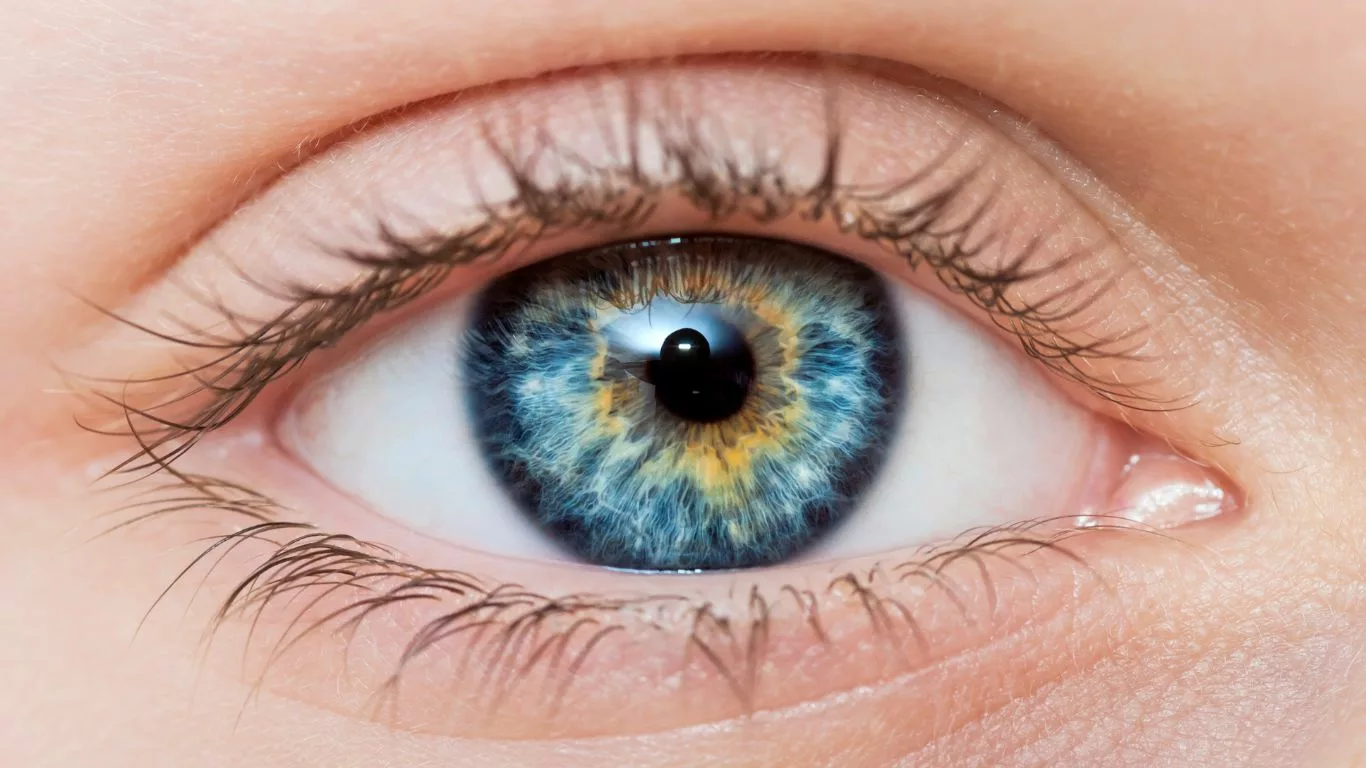
Conclusion
While dehydration itself does not directly cause eye floaters, it can exacerbate conditions that make floaters more noticeable. Maintaining good hydration and overall eye health is essential in managing and potentially reducing the impact of eye floaters. If you experience sudden or severe floaters, seek medical attention promptly, as they can indicate more serious eye conditions.
Appendices
References
For further exploration of the relationship between dehydration and eye floaters, consider reviewing the following references:
- National Eye Institute. (2020). Facts About Floaters. Retrieved from NEI
- American Academy of Ophthalmology. (2023). What Causes Floaters and Flashes in My Vision? Retrieved from AAO
- Hydration and Health. (2018). The Importance of Staying Hydrated. Retrieved from Healthline
FAQs
Here are some frequently asked questions about dehydration and eye floaters:
- Can drinking more water help reduce eye floaters? While drinking water won’t eliminate existing floaters, it can improve overall eye health and reduce the severity of floaters caused by other conditions.
- What are the symptoms of dehydration? Common symptoms include thirst, dry mouth, dark urine, fatigue, dizziness, and dry skin.
- When should I see a doctor about eye floaters? If you notice a sudden increase in floaters, flashes of light, or a loss of peripheral vision, seek medical attention immediately.
Related Table
Here’s a summary table of key information regarding dehydration and eye floaters:
| Aspect | Information |
|---|---|
| Symptoms of Dehydration | Thirst, dry mouth, dark urine, fatigue, dizziness, dry skin |
| Causes of Eye Floaters | Vitreous detachment, eye infections, eye injuries, diabetic retinopathy, retinal tears |
| Preventive Measures | Stay hydrated, eat a balanced diet, protect your eyes, regular eye check-ups |
Note: Individual responses to hydration and eye health vary, and it’s important to seek personalized advice from a healthcare provider.
Disclaimer: The information provided in this article is for educational and informational purposes only. It is not intended to be a substitute for professional medical advice, diagnosis, or treatment. Always seek the advice of your physician or other qualified health provider with any questions you may have regarding a medical condition. Never disregard professional medical advice or delay in seeking it because of something you have read in this article. Reliance on any information provided in this article is solely at your own risk.

Camellia Wulansari is a dedicated Medical Assistant at a local clinic and a passionate health writer at Healthusias.com. With years of hands-on experience in patient care and a deep interest in preventive medicine, she bridges the gap between clinical knowledge and accessible health information. Camellia specializes in writing about digestive health, chronic conditions like GERD and hypertension, respiratory issues, and autoimmune diseases, aiming to empower readers with practical, easy-to-understand insights. When she’s not assisting patients or writing, you’ll find her enjoying quiet mornings with coffee and a medical journal in hand—or jamming to her favorite metal band, Lamb of God.



